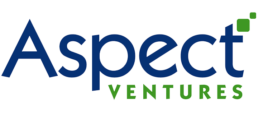Jennifer Fonstad is the rarest of finds in Silicon Valley: cofounder of a woman-run venture capital fund. By the time she launched Aspect in 2014, with partner Theresia Gouw, Fonstad had already made the Forbes Midas list, climbed Mount Kilimanjaro and closed a deal while in labor. As an investor, she avoids divas at all costs, and don’t expect her to write a check and then disappear; collaboration makes her tick. Her primary focus is the $150 million fund: Series A rounds — about $1 million to $6 million, and mainly for small cybersecurity, digital health and mobility businesses preparing to be huge.
(Read on Entrepreneur)
ForeScout Technologies
Their approach: Focus on growth
Want your VC to be a backer for life? Deliver the promised growth. That’s how ForeScout Technologies, a San Jose-based cybersecurities company, scored three investments from Aspect Ventures investors. The first came a decade ago, from Fonstad’s partner. Then in 2014, the first week Aspect Ventures was formed, the duo backed ForeScout again because it had a need they could appreciate: “The company was growing quickly and needed sales and marketing experience,” says Fonstad. ForeScout also hired a new CEO to help expand its services — for example, it figured out how companies can monitor lots of new devices inside a network, now that employees bring hordes of gadgets to work. That led to even more growth, which is why Aspect invested yet again in January 2016, this time as part of a $76 million raise in which the startup was valued at $1 billion. The unicorn status doesn’t impress Fonstad. “It’s an interim valuation,” she says. But she sees steady growth — in revenues, operating margins, customer base. When that happens, the valuation just comes along, as will the investors. Again and again.
Troops
Their approach: Elegance, not buzzwords
Artificial intelligence is hot, yes, and plenty of entrepreneurs try to ride this shiny new toy into the arms of investors. But Fonstad says that means she has her guard up for ideas that seem designed only for splash. “AI is not an end in itself,” she says. “It’s a tool.” In 2016, the New York-based startup Troops pitched her on its product, which uses AI to help salespeople. Need a report from Salesforce, say? Ask the Troops-powered bot (from within Slack) and, boom, it delivers it like a personal assistant would. Fonstad found this “elegant” and “seamless” — which is to say, when people use it, they don’t think about the AI. They just like the product. Second, she loved the chemistry among the founding trio — Dan Reich, a serial entrepreneur; Scott Britton, a marketing and sales whiz; and Gregory Ratner, the engineering brains. “They showed mutual respect,” she says. This is critical to helping them share information to move the business forward. Fonstad likens them to a three-legged stool: “You need all three legs to hold it up.”
The Muse
Their approach: Matching values
Lesson to entrepreneurs: Your peers can be big boosters — and investors listen. Several entrepreneurs drew Fonstad’s attention to The Muse, a millennial career site that today has 50 million users and 700 corporate and nonprofit subscribers. Fonstad had long been thinking about the radical changes taking place in the workplace, and was “looking for companies that could take advantage of the extensive disruption.” The Muse satisfied certain must-haves on her list: They showed that they were prepared to listen, learn and adapt, she says. She loved hearing about how it already made changes. For example, The Muse originally focused on women only but, when it saw who used the site, quickly broadened to include men. And it radically rethought the online recruiting process. LinkedIn, the granddaddy of professional websites, is transaction-oriented: Recruiters woo prospects based on job descriptions. But The Muse aims to foster long-term relationships between employers and current and prospective employees. “It’s not just about getting a job working for a company but also where the company’s values match the individual’s values,” Fonstad explains. “That resonated with me right away.” She invested in 2015.

